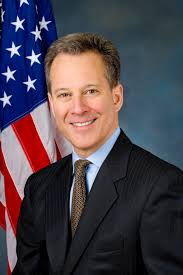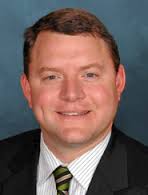It was probably a mercy to Ffolliott “Fluff” LeCoque that the Las Vegas showbiz legend died two days before Caesars Entertainment buried a dagger in the heart of Jubilee. LeCoque had been part of the original cast and  went on to be the show’s den mother, maintaining creator Donn Arden‘s legacy. Her thoughts on pop choreographer Frank Gaston Jr.’s disastrous reboot of the show are unrecorded but it’s unlikely they would have been favorable. Caesars will drop the final curtain on the 34-year-old show on Feb. 11. So far, no one has pointed the finger of blame at Caesars CEO Mark Frissora but cost-cutting is his trademark and, with its scores of dancers and innumerable rhinestones, Jubilee would have made a tempting target for the red pencil.
went on to be the show’s den mother, maintaining creator Donn Arden‘s legacy. Her thoughts on pop choreographer Frank Gaston Jr.’s disastrous reboot of the show are unrecorded but it’s unlikely they would have been favorable. Caesars will drop the final curtain on the 34-year-old show on Feb. 11. So far, no one has pointed the finger of blame at Caesars CEO Mark Frissora but cost-cutting is his trademark and, with its scores of dancers and innumerable rhinestones, Jubilee would have made a tempting target for the red pencil.
Of course, Caesars is promising something spectacular in Jubilee‘s place. After all, the theater is an awe-inspiring technical asset that can hardly be allowed to sit idle. But whatever follows Jubilee will undoubtedly be smaller in scale and, besides, Caesars’ track record of dreaming up new production shows (Surf The Musical, anyone?) hasn’t been the greatest.
* In a setback for DraftKings and FanDuel, the two daily fantasy sites lost their first round in court against New York State Attorney General Eric  Schneiderman. Judge Manuel J. Mendez found that Empire State penal law “is broadly written and as currently written sufficient for finding that DFS involves illegal gambling.” As to the DFS’ sites that their offerings were games of skill, the judge cited a law that stated “any contest, game, gaming scheme, or gaming device in which the outcome depends in a material degree upon an element of chance, notwithstanding that skill of the contestants may also be a factor therein.” [emphasis his]
Schneiderman. Judge Manuel J. Mendez found that Empire State penal law “is broadly written and as currently written sufficient for finding that DFS involves illegal gambling.” As to the DFS’ sites that their offerings were games of skill, the judge cited a law that stated “any contest, game, gaming scheme, or gaming device in which the outcome depends in a material degree upon an element of chance, notwithstanding that skill of the contestants may also be a factor therein.” [emphasis his]
Judge Mendez also dinged the DFS defendants for citing a New Jersey case “that has no application in this jurisdiction” and pointed out that the Unlawful Internet Gambling Enforcement Act didn’t override state laws that applied to activities like DFS. Mendez further ruled that DraftKings had failed to make its case that Schneiderman was usurping legislative and judicial powers, among others. Mendez granted Schneiderman temporary restraining orders against both DFS sites “until a final determination” could be made by the court system.
“But, the state Court of Appeals immediately issued a stay,” writes legal scholar I. Nelson Rose. “The higher Court agreed with me, that there is no emergency requiring an immediate shutdown, and the hardship to the DFS operators being closed down outweighs the hardship to the state in letting them temporarily stay open.” The two sites can continue to operate through Jan. 4, allowing them to book plenty of lucrative, end-of-season football action.
Uplay1 CEO Bruce Merati was quick to find another problem with the DFS business model, focusing on the role of major media outlets as both investors and advertising outlets for FanDuel and its ilk, and finding a conflict of interest therein. “Gaming regulators and the SEC could argue that an investment by a media conglomerate that immediately receives back its investment dollars as advertising revenues should be frown [sic] upon as a conflict of interest and a financial trick. Media investors, in effect are taking money out of one pocket and immediately putting it back in their other pocket inflating their revenues by their own investment dollars and at the same time are increasing valuations of their investments,” Merati wrote.
So while DraftKings can continue to make hay in New York State and FanDuel can theoretically resume operations there, at least in the short term, the complications of DFS show no sign of going away.
* Hard Rock International CEO James Allen is already doing a full-court press for the new Seminole Tribe compact, having met with 50 legislators already (perhaps to make up for Gov. Rick Scott‘s passivity on his  own compact). It’s unclear how much the Seminoles are willing to compromise but mutation of the compact seems inevitable, even from the point of view of its supporters. It’s a good, fair deal for the people of the state of Florida,” said state Sen. Rob Bradley (R, left), but he allowed, “There will be some twists and turns as it goes through the process.” Added state Rep. Jose Felix Diaz (R), “You know that you need 61 votes. How you get there is a matter of compromise and creativity.” How much the Seminoles need to compromise and how creative Diaz will need to be remains to be seen, but early indications are that a lot of flexibility in order, even though you’d think a 28% reduction in racinos’ tax rates would garner plenty of support.
own compact). It’s unclear how much the Seminoles are willing to compromise but mutation of the compact seems inevitable, even from the point of view of its supporters. It’s a good, fair deal for the people of the state of Florida,” said state Sen. Rob Bradley (R, left), but he allowed, “There will be some twists and turns as it goes through the process.” Added state Rep. Jose Felix Diaz (R), “You know that you need 61 votes. How you get there is a matter of compromise and creativity.” How much the Seminoles need to compromise and how creative Diaz will need to be remains to be seen, but early indications are that a lot of flexibility in order, even though you’d think a 28% reduction in racinos’ tax rates would garner plenty of support.
One sticking point is that, although six Florida counties have voted to authorize slots, only Palm Beach County gets them under the contract. Although some parimutuels will get to offer “instant racing,” the horsey set isn’t happy about decoupling racino offerings from having a mandated set of races per year. “If there’s nowhere to race thoroughbreds in the state of Florida, it’s going to decimate the breeding industry,” complained lobbyist Nick Iarossi. With all the interest groups pushing conflicting agendas, Allen, Bradley and Diaz have a lot of heavy lifting ahead of them before this compact becomes law.


I think it is odd that MLB is okay with DFS and NOT okay with Pete Rose.
Sure, Pete used his knowledge to skillfully bet on games — the same as DFS does today.